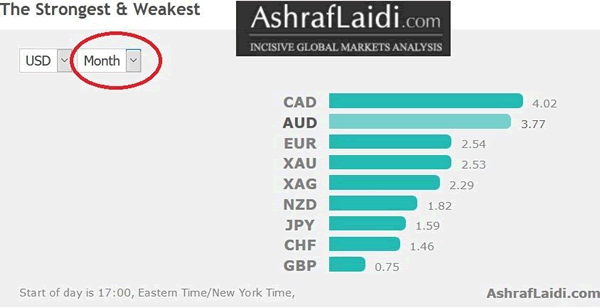The rising tide of global growth is lifting all boats but there are lessons in how some are recovering better than others. The Aussie is the strongest, while the JPY is the weakest as equity indices enter an obligatory corrective rally ahead of the Fed. Month-to-date, all currencies are up against the dollar, with the loonie on top and GBP at the bottom. The Premium Insights will issue a trade tomorrow ahead of the Fed decision

In the pre-crisis era there was an economic orthodoxy that virtually every country followed. That order has broken down in the past decade and led to a series of economic experiments and now we’re beginning to see the results.
The big surprise of 2017 has been Canada…as it was the surprising outperformer of 2016. The IMF said on Monday Canada will lead G7 countries in growth and that’s with commodity prices halved from two years ago. Economists still don’t quite believe in how strongly it’s grown.
A pessimist would say that unsustainable asset price rises – housing in this case – have juiced consumer spending. A more favourable judgement would be that stimulative government policies boosted growth.
The UK could have been in the same position as Canada but fiscal tightening and Brexit uncertainty undercut some of the growth potential. It’s a similar story in Europe where fiscal discipline and pockets of tight bank lending have held back the recovery.
In the US, Washington is incapable of consensus and the gridlock continues but there is always the belief that politicians there will do the right thing…once all the other options have been exhausted.
The two biggest losers in Monday’s IMF update were the US and UK. The commonality there is political uncertainty.
The lesson so far this year is that it’s tough to pick the winners and losers because it’s such a fine line. In generations past, one country would be growing 4% and another 1%. Now, the difference in forecasts between the top G7 country (Canada 2.5%) and laggard (Japan 1.3%) is small but still has big implications in FX.
We could see just how big those implications are if Japan ever turns the corner. The minutes of the June BOJ meeting showed the board has no plans of exiting policy any time soon as long as CPI does not reach 2% despite tightening labour markets.
